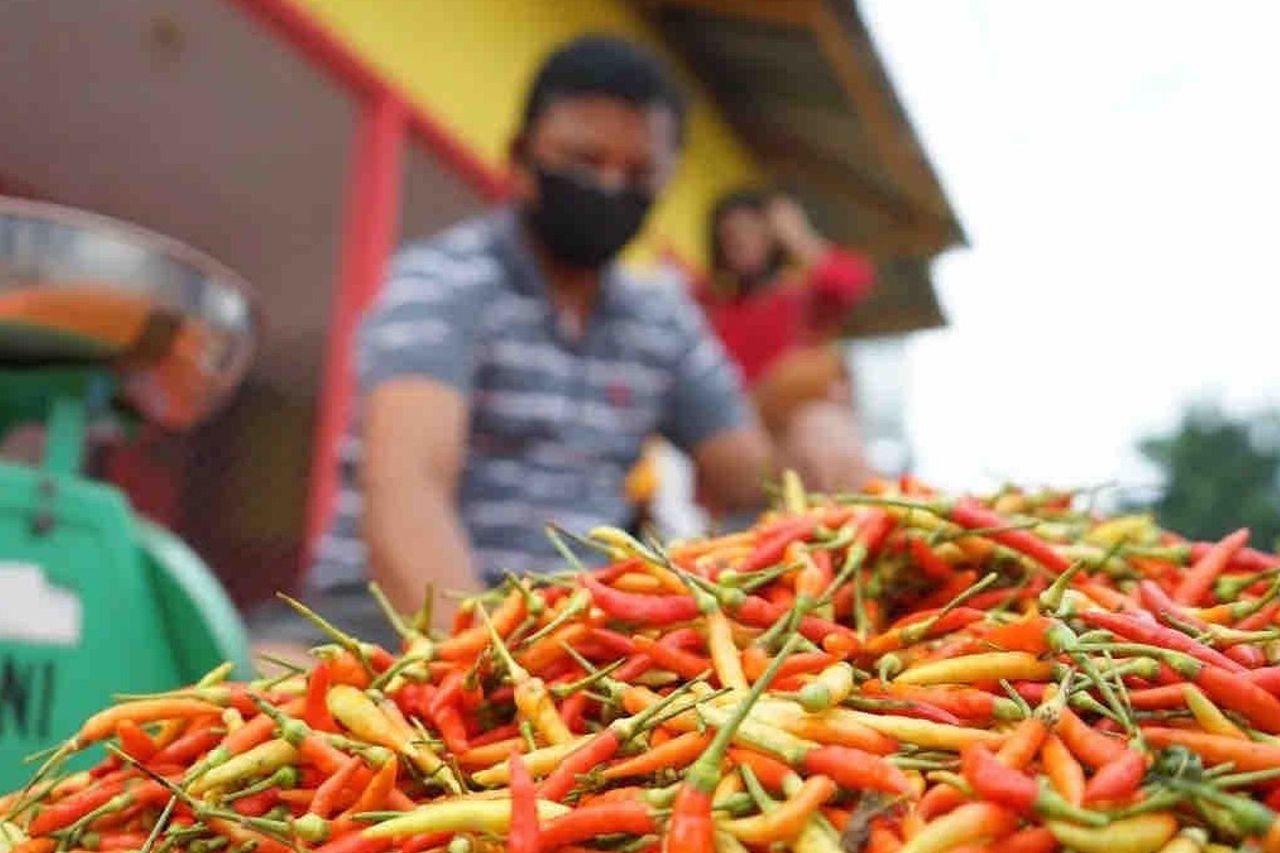Farmers Explain The Cause Of Chili Prices Soaring: Productivity Drops, Bunga Rontok Due To Rain

JAKARTA - Chairman of the Indonesian Chili Champion Association (ACCI) Tunov Mondro Atmojo revealed that the price of chili has recently soared in the market due to decreased productivity.
The decline occurred due to high rainfall resulting in flooding.
"The cause of this price increase, which is definitely one, is because of flooding or if our language is flooded with our plant water. If the chili tree is flooded within one month, it will never be strong. That's the first factor, the weather," said Tunov Mondro Atmojo, chairman of the Indonesian Chili Champion Association (ACCI) in a chili SPHP coordination meeting with the National Food Agency (Bapanas), quoted Friday, January 10.
Tunoy gave an example, the conditions that occurred in Central Java where many farmers failed to harvest due to rain.
"If in the Central Java region it can be up to 70 percent of failure due to rain, puddles. Except in coastal areas such as Kulon Progo, Kulon Kebumen, it can still be conditioned because the land is sand," he said.
In addition, said Tunov, rain and strong winds caused chili flowers to fall. This condition causes productivity to decrease.
"That's mostly productivity down due to flower falloffs. Rain, wind, many flowers fall out, finally the probability per tree is drastically reduced, it can reach 50 percent," he explained.
Previously, it was reported that the price of red cayenne pepper continued to increase in the market.
In Jakarta, especially in Jatinegara and Kramatjati markets, it has reached Rp130,000 per kilogram (kg).
Deputy for Food Availability and Stabilization of the National Food Agency (Bapanas), I Gusti Ketut Astawa admitted that there has indeed been an increase in prices for the red chili pepper commodity at this time.
"Yes, the price of cayenne pepper is correct (to experience an increase," said Ketut to VOI, in Jakarta, Wednesday, January 8.
SEE ALSO:
This price increase, continued Ketut, occurred because farmers experienced crop failure due to extreme weather. Due to this condition, the supply of red cayenne pepper also decreased.
"In December the rainfall was high, so our production became disrupted. Several flood areas and so on. So that the supply fell, prices would automatically rise," he said.

